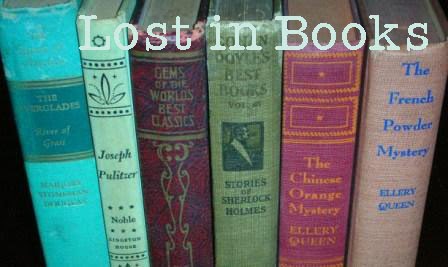Monday, January 07, 2013
Interview with Eleanor Kuhns
Q. First, congratulations on your success with your debut novel, “A Simple Murder,” which won the Mystery Writers of America/Minotaur contest. Had you written anything else before this, and how did it feel to win this prestigious award on your first novel?
A. I wrote science fiction for many years. I always read mysteries though and in retrospect, I realize it was a signal to me about where my true interests lay. I could hardly believe I'd won and even now, when the second book is coming out next spring and I've finished a third, I still have to pinch myself. Accepting the award was one of the best moments of my life.
Q. You were a librarian when “A Simple Murder” was published. Are you still working as a librarian? And what made you take the step into writing?
A. I am still working as a librarian. In some ways it is a good fit with writing. I like to be out with the people. It is in the world of books so I think many librarians are closet writers. Plus, I've always been a big reader, even as a child. I wrote my first story at the age of ten.
Q. “A Simple Murder” is steeped in the 1790s, in a Shaker community. How much research went into this book, and why this specific place and time?
A. I researched the time period and the Shakers for about two years, and the research continues now. I regularly find conflicting information in the sources. I regularly visit Shaker Museums and buy all the self-published materials, which usually has new information. I especially like visiting the community in Maine which still has four living Shakers.
I am fascinated by the Whiskey Rebellion since we are still fighting many of the same issues (state's rights, the role of the federal government, taxation) today. And I wanted to write about our country. Many of the historical mysteries, even those by American writers, are about England, Japan, Europe, not about the US.
Q. Why did you write this as a mystery instead of, say, a straight historical novel?
A. I love mysteries but more than that, the terrible things we do to one another is part of what makes us human (unfortunately). I don't think people change very much, no matter what the social and cultural landscape around them.
Q. I know you are working on upcoming books. Can you tell us a bit about them? Are they part of the same series?
A. I left some loose ends at the end of The Simple Murder. In the next book (Death of a Dyer) I send Will Rees home to resolve most of them as well as to fill in some backstory. It also gives me the chance to talk about dyes and dyeing, something I enjoy as a hobby. (I also weave, which is one reason I made my character a weaver.) The third puts Mouse into danger so I send Rees and Lydia back to the Shaker world, at least tangentially, to investigate.
Q. You wrote a book that is not trendy; it has no vampires and is not a car-chase thriller. It's even set in a community where there's no sex or swearing! Yet it has gotten great reviews (in addition to winning this award, of course). What do you say to writers who ask you what they should write about?
A. I think people should write about what interests them and what they care about. Not necessarily what they know -- I've never been a Shaker, but it has to fascinate them. Also, I read a lot of those mash-ups but the ones that work best, in my opinion, are the ones that involve the reader in the lives of the characters. Does the reader care what happens?
Q. Any lessons you’ve learned post-publication about being a writer?
A. It is a lot more work than I ever dreamed. Writing the book is just the first step.
Q. Finally, the question I ask everyone: Who are your favorite authors, and who are you reading now?
A. I have pretty catholic tastes and read widely. I love both Anne Perry and Barbara Hambly (especially the Benjamin January series) but I also read Michael Connolly, C.J. Box and Linda Castillo. Right now I am reading Anil's Ghost by Michael Ondaatje. I have a Mankell Henning that is next on my list.
Subscribe to:
Comments (Atom)

